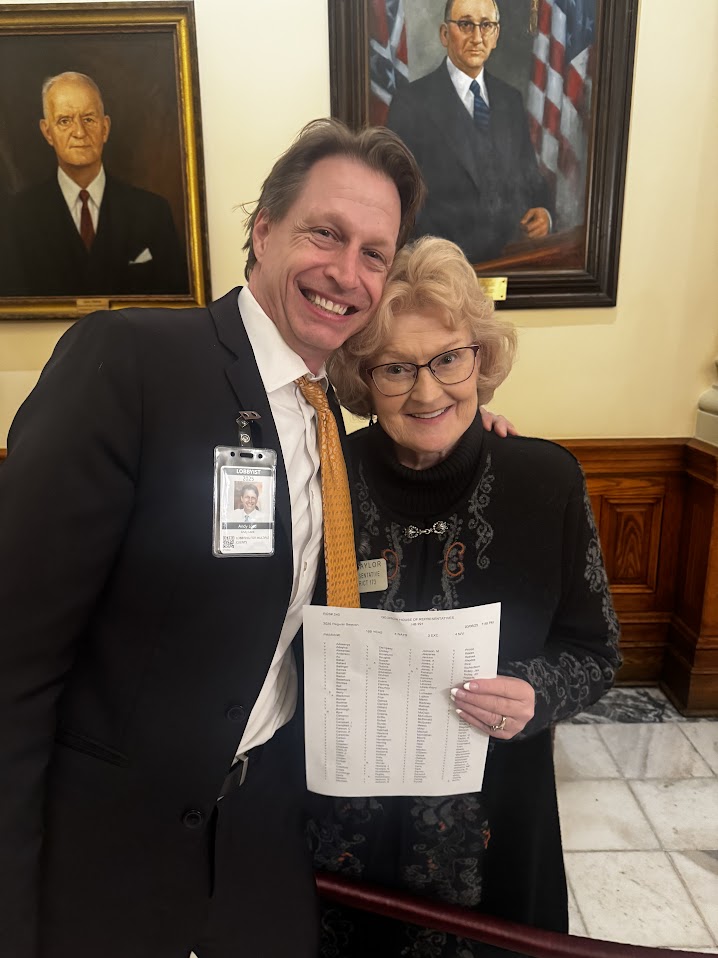Many state Medicaid systems today are a patchwork of vendors and capabilities not designed to pull and track data from disparate sources — a capability at the core of tracking…
Blog ()
- Home
- >
- Medicaid
Tag: Medicaid
Updated: Why ACA Premiums May Soon Become Less Affordable and What an Expiring Tax Credit Could Mean for Georgia Families

Update – August 2025: Enhanced Affordable Care Act premium tax credits (ePTCs) still expire on December 31, 2025, unless Congress acts. In 2025, Georgia Access enrolled over 1.5 million Georgians, 93% of whom depend on these subsidies to make health coverage affordable. Without an extension, premiums in Georgia are projected to jump over 75% on average, and most 2026 insurer filings already assume the credits will lapse. A typical example: a 60-year-old couple earning about $85,000 would pay roughly $18,000 more per year if the ePTCs disappear. The premium increases resulting from the expiration of the ePTCs could cause about 340,000 more Georgians to become uninsured. In short: swift Congressional action to extend the ePTCs—ideally before rate finalization—would prevent sharp premium spikes for Georgia families and avert significant coverage losses.
See how costs could rise in your Congressional district or use the calculator to estimate cost increases based on your income information — then contact your members of Congress today and tell them to extend the enhanced premium tax credits to keep health care affordable for Georgia families.
(more…)Georgians with Medicaid or Georgia Access coverage: Your story matters.
Georgians for a Healthy Future is partnering with Families USA to amplify the voices of Georgians who rely on Medicaid and affordable health coverage. If you’ve been helped by Medicaid or the enhanced premium tax credits through Georgia Access, we invite you to share your story.
Why Your Story is Important
Right now, health care protections are at risk. With federal cuts to Medicaid on the horizon and the possible expiration of enhanced tax credits, it’s more important than ever for Georgians to speak up and make their voices heard. Your story can help policymakers understand how these programs affect real lives — and why they need to be protected.
(more…)Join GHF’s New Caregiver Coalition and Help Shape Better Policies
Georgians for a Healthy Future is launching a new Caregiver Coalition, and we want you to be part of it.
Why Join the Caregiver Coalition?
Family caregivers play a critical role in supporting the health and well-being of Georgians. Whether you care for an adult or child with an intellectual or developmental disability, a physical disability, an aging family member, or someone with complex health needs, your experiences matter.
(more…)Will Washington Roll Back Georgia’s Coverage Gains?
Background
On May 22, the U.S. House passed a sweeping budget bill, known as the “One Big Beautiful Bill” Act. The budget bill proposes significant changes to the Affordable Care Act (ACA) Health Insurance Marketplace, which is known as Georgia Access in our state. Proponents say these changes will cut costs, but they would also make it harder for many Georgians to enroll in or keep their health coverage.
The Senate is now making its changes to the bill, but what those changes will look like is unclear. As currently written, projections from the non-partisan Congressional Budget Office (CBO) show the House’s changes would reduce overall Marketplace enrollment and increase the uninsured rate nationally and in Georgia. If the budget bill passes as currently written, the combination of Marketplace (including allowing the expiration of the enhanced premium tax credits) and Medicaid changes could lead to an estimated 560,000-940,000 Georgians becoming uninsured.[1] (Notably, some of the marketplace changes presently in the bill are also under consideration by the Centers for Medicare & Medicaid Services (CMS), meaning they could be authorized through federal regulation even without new legislation.)
(more…)Stripping Medicaid to Fund Tax Breaks? Medicaid Cuts Could Unravel Health Care in Georgia
Medicaid, the federal health insurance program for low-income children and some adults under 65, is essential to the physical and financial health of Georgia families and the state as a whole. Medicaid covers almost 2 million low-income Georgians (18% of the state’s population), serves as a crucial lifeline for Georgia’s rural hospitals. It also accounted for nearly 20% of the state’s total budget in 2023.
However, D.C. politicians are currently considering overhauls to Medicaid that would limit the program’s ability to serve Georgians, dramatically reduce its efficiency and effectiveness, and make it more expensive for the state to operate.
Ultimately, if Congress cuts Medicaid, Georgia families will pay the price.
(more…)LEGISLATIVE UPDATE: WEEK 11

The 2025 legislative session is in its final stretch, with just a few days left until Sine Die (the last day of the session) on Friday, April 4th. Lawmakers are racing to finalize key bills and the state budget—and there’s still time for you to speak up.
Things can move quickly in these final days, and last-minute advocacy opportunities may arise. Stay connected with us on social media throughout the week so you don’t miss a chance to take action when it matters most.
After the session ends, we’ll share a full recap, including updates on health care bills that passed (or didn’t), what it all means for Georgians, and any health-related study committees that will convene before next year’s session. In the meantime, you can check out our bill tracker to follow the legislation we’re monitoring as we get closer to Sine Die.
(more…)LEGISLATIVE UPDATE: WEEK 10

The 2025 legislative session is in its final stretch, with two weeks left until session ends on April 4th. With only a few legislative days left, lawmakers are working quickly to finalize key bills and the state budget. You can view the legislative schedule here.
Ending the Practice of Subminimum Wage in Georgia
Last week, the House passed Senate Bill 55, the Dignity and Pay Act. The bill now heads to the Governor for final approval. SB 55 phases out the use of 14(c) certificates in Georgia to pay subminimum wages (below the federal minimum wage of $7.25/hr) to workers with disabilities.
Initially intended to promote employment for disabled veterans, Section 14(c) of the 1938 Fair Labor Standards Act (FLSA) permits paying people with disabilities wages below the statutory federal minimum wage. Section 14(c) can no longer apply to disabled veterans, yet it remains a legal way to pay people with disabilities – usually people with developmental disabilities (DD) – below minimum wage. (Employers using 14(c) waivers often pay disabled employees just pennies per hour.) More than 85 years after the law’s initial passage, the policy has frequently led to exploitation—leaving workers with developmental disabilities earning wages far below the poverty line in roles that offer little chance for growth or advancement.
(more…)LEGISLATIVE UPDATE: WEEK 9

With Crossover Day behind us, the pace at the Capitol is picking up. Lawmakers are moving quickly to debate and vote on bills that survived the deadline, while the budget process moves full speed ahead.
Take Action: Advocate for More GHVP Funding!
The Georgia Housing Voucher Program (GHVP) was created to help Georgia meet its legal obligations under the Olmstead Agreement, which requires the state to provide community-based housing for people with serious and persistent mental illness (SPMI) instead of institutionalizing them. GHVP is a permanent supportive housing program that helps these individuals secure stable housing, avoid homelessness, and access essential services. The program directly pays rent to landlords and provides ongoing support to keep residents housed and connected to care.
Despite its success, GHVP has been underfunded for years. The House added $1.7 million for GHVP in the FY26 budget, but at least $20 million more is needed to expand housing support and fulfill Georgia’s legal and moral obligations. We need your help to urge the Senate Appropriations Health and Human Resources Subcommittee and Appropriations Chair Blake Tillery to increase GHVP funding by $20 million.
Contact the Senate Appropriations Committee today!
House Passes FY26 Budget – What’s Next?
(more…)LEGISLATIVE UPDATE: WEEK 8

Crossover Day has come and gone, and the final stretch of the 2025 legislative session begins!
With just 12 legislative days left before Sine Die on April 4, lawmakers will move quickly to vote on the bills that made it through this key deadline. The legislature will pack the next three weeks with committee hearings, floor votes, and last-minute negotiations.
We’re thrilled to share that HB 291, the Community Health Worker certification bill, passed the House late Thursday night! The House passage of HB 291 is a big win for Georgia’s Community Health Workers and the communities they serve. Join us in sending a huge “Thank you!” to our partners at Georgia Watch and all the advocates who worked tirelessly to get this bill through the House—your efforts made this progress possible! Let’s keep up the good work to ensure this bill successfully passes through the Senate!
Keep reading for a full breakdown of what survived Crossover Day and what comes next for health care at the Capitol.
(more…)The Georgia Department of Community Health (DCH) has reopened the public comment period for the Pathways to Coverage® waiver extension. The new deadline to submit comments is March 19, 2025. This means you have another chance to speak up and demand better health care for Georgians.
Pathways to Coverage launched in July 2023 as a Medicaid program that requires participants to work or meet strict activity requirements to keep their health coverage. Unfortunately, the program has failed to deliver. For example:
(more…)Stay Connected
GHF In The News
Archive
- September 2025
- August 2025
- July 2025
- June 2025
- May 2025
- April 2025
- March 2025
- February 2025
- January 2025
- October 2024
- May 2024
- April 2024
- March 2024
- February 2024
- January 2024
- December 2023
- October 2023
- July 2023
- April 2023
- March 2023
- February 2023
- January 2023
- December 2022
- October 2022
- September 2022
- August 2022
- June 2022
- April 2022
- March 2022
- February 2022
- January 2022
- December 2021
- November 2021
- October 2021
- September 2021
- August 2021
- June 2021
- May 2021
- April 2021
- March 2021
- February 2021
- January 2021
- December 2020
- November 2020
- October 2020
- September 2020
- July 2020
- June 2020
- May 2020
- April 2020
- March 2020
- February 2020
- January 2020
- December 2019
- November 2019
- October 2019
- September 2019
- August 2019
- July 2019
- May 2019
- April 2019
- March 2019
- February 2019
- January 2019
- December 2018
- November 2018
- October 2018
- September 2018
- August 2018
- July 2018
- June 2018
- May 2018
- April 2018
- March 2018
- February 2018
- January 2018
- December 2017
- November 2017
- October 2017
- September 2017
- August 2017
- July 2017
- June 2017
- May 2017
- April 2017
- March 2017
- February 2017
- January 2017
- December 2016
- November 2016
- October 2016
- September 2016
- August 2016
- July 2016
- June 2016
- May 2016
- April 2016
- March 2016
- February 2016
- January 2016
- December 2015
- November 2015
- October 2015
- September 2015
- August 2015
- July 2015
- June 2015
- May 2015
- April 2015
- March 2015
- February 2015
- January 2015
- December 2014
- November 2014
- October 2014
- September 2014
- July 2014
- May 2014
- March 2014
- January 2014
- December 2013
- October 2013
- September 2013
- August 2013
- July 2013
- June 2013
- May 2013
- April 2013
- March 2013
- February 2013
- January 2013
- November 2012
- October 2012
- September 2012
- July 2012
- June 2012
- May 2012
- April 2012
- March 2012
- February 2012
- January 2012
- December 2011
- November 2011
- October 2011
- September 2011
- August 2011
- July 2011
- June 2011
- April 2011
- March 2011
- February 2011
- January 2011
- December 2010
- November 2010
- October 2010
- September 2010
- August 2010
- July 2010
- June 2010
- May 2010
- April 2010
- March 2010
- February 2010
- January 2010
- December 2009
- November 2009
- October 2009




